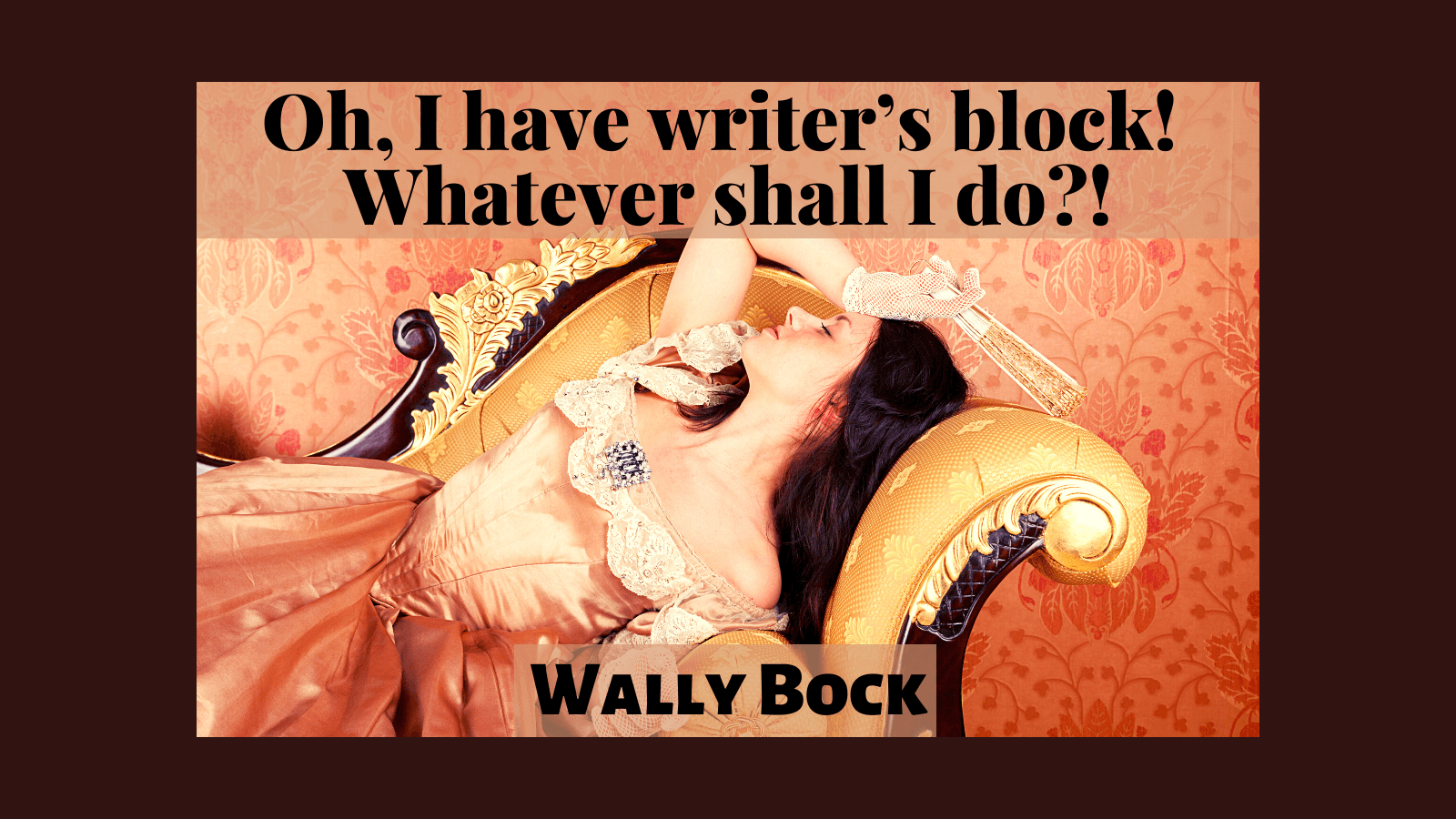I can’t imagine the contractor who’s working at our house coming into my office and saying, “Wally, I don’t know how I’m going to finish the bathroom. I’ve got contractor’s block!” My father was a preacher for more than 60 years I don’t remember hearing anything about “Preacher’s block.” Writers seem to be the only people who make a big deal out of the problems of their work.
I’m not sure why that is. Maybe it’s a way to romanticize the craft. Or maybe it’s one more way to keep from actually writing.
If you want to do more good writing, leave worrying about writer’s block to others. Get right to the business of solving your writing problems. Here’s how to get started.
Define the problem
The problem is straightforward. You’re working on a writing project, and you hit a rough patch. You’re doing that thing where you’re staring at a blank screen and blood drops are starting to form on your forehead. Your challenge is to get moving again.
Name the beast
Don’t call the problem “writer’s block.” Call it a rough patch or a writing problem. That turns it from a mystical experience into a practical reality. Now you can take practical steps to solve the problem.
Lighten up!
You’re going to solve the problem. Millions of writers for thousands of years have solved their problems. You will too unless you get all wrapped around your own axle and give up. Remember: a relaxed and playful mind is a creative mind.
Power through
One way to solve the problem is to just start writing and power through. Read the last few pages you’ve written, then just start to write. The first stuff you write will probably be crap. Not to worry, as you get into the flow of the writing, it will get better. You can go back later and clean it up.
Some writers start writing without even worrying about the project. They just start freewriting. Pretty soon, your brain will remember you’re supposed to be working on a project and start giving you practical ideas. Then you can switch over to project work.
Trigger inspiration
Maybe you just don’t like the power-through option. That’s okay, you can use what we know about the creative process to trigger inspiration.
Do something that puts your body on autopilot and leaves your mind free to roam. You can take a shower, do some housework, or go for a walk. Walks are especially good. Nietzsche said that all great ideas were conceived while walking. Just make sure you have a way to capture your good ideas like a notebook, index cards, or a small digital recorder.
Know what’s next
Head off those writing rough patches whenever you can. Ernest Hemingway and many other writers suggest the way to do that is to quit a writing session while you’re still going good. That way you’ll know exactly where to start when you pick up your writing project again. Your process for ending a writing session should include deciding what you’re going to write first in your next session.
Wait. What? You don’t have a process for ending your session?
Develop strong writing processes
Strong writing processes will make you more productive and less likely to hit a rough patch. Develop a ritual for starting each writing session. Eliminate distractions and minimize interruptions. Train your brain so it knows that when you go through your starting ritual, it’s time to write.
Develop a ritual for ending each session. Decide what you’re going to write first in the next session. Plan what you need to do between sessions. Put your tools away.
Everyone, in every line of work, has dry spells and rough patches where they don’t know what they should do next. You can call yours “writer’s block” if you like. But you’ll have an easier time of it and be more productive if you see that rough patch as a problem to solve.
Takeaways
Writer’s block is simply a problem to solve. Don’t make it something cosmic.
Trust your brain and your process to solve the problem.
Lighten up. A relaxed and playful mind is a creative mind.
Just start writing.
Do things that trigger inspiration.
Always know what’s next
Develop consistent and dependable writing processes.
